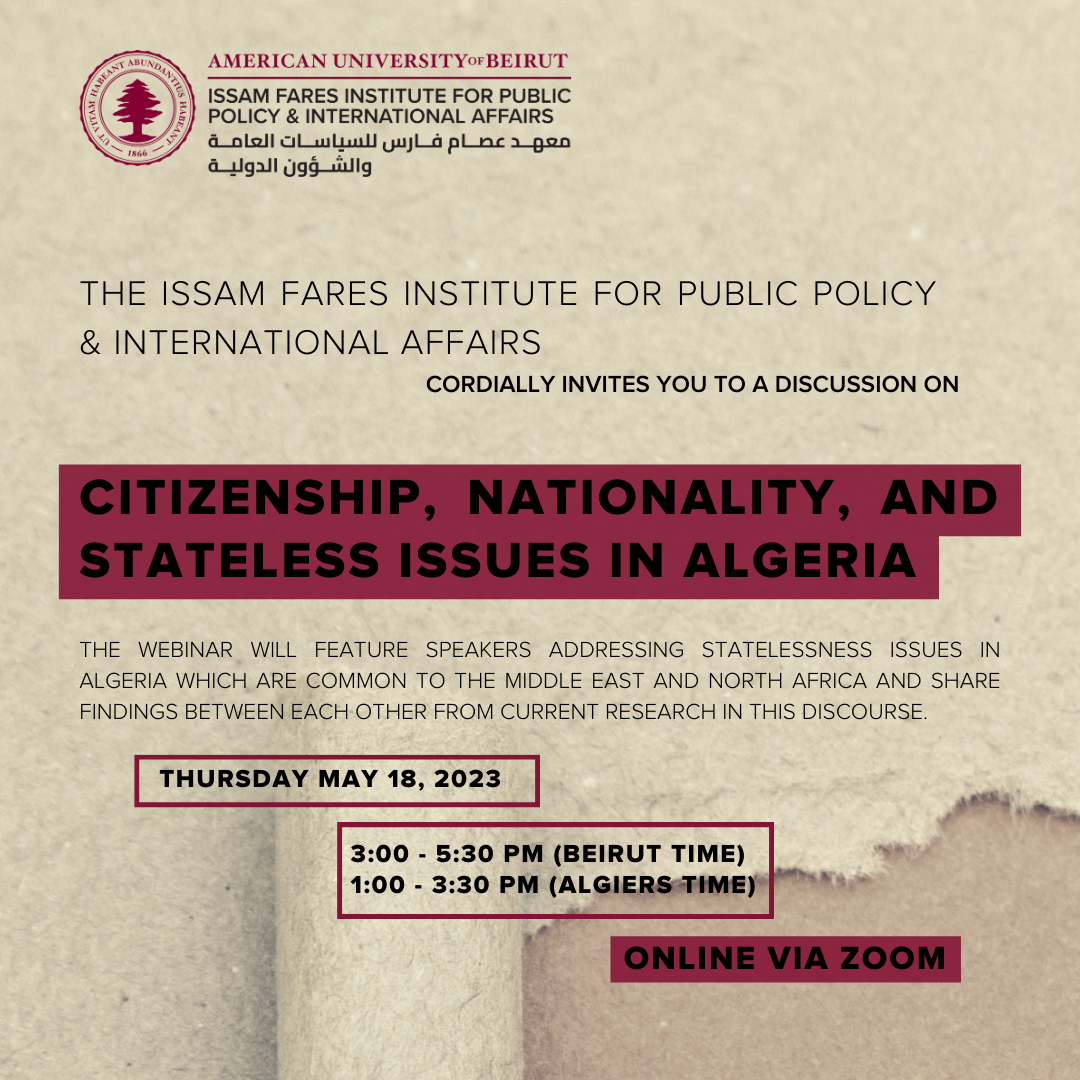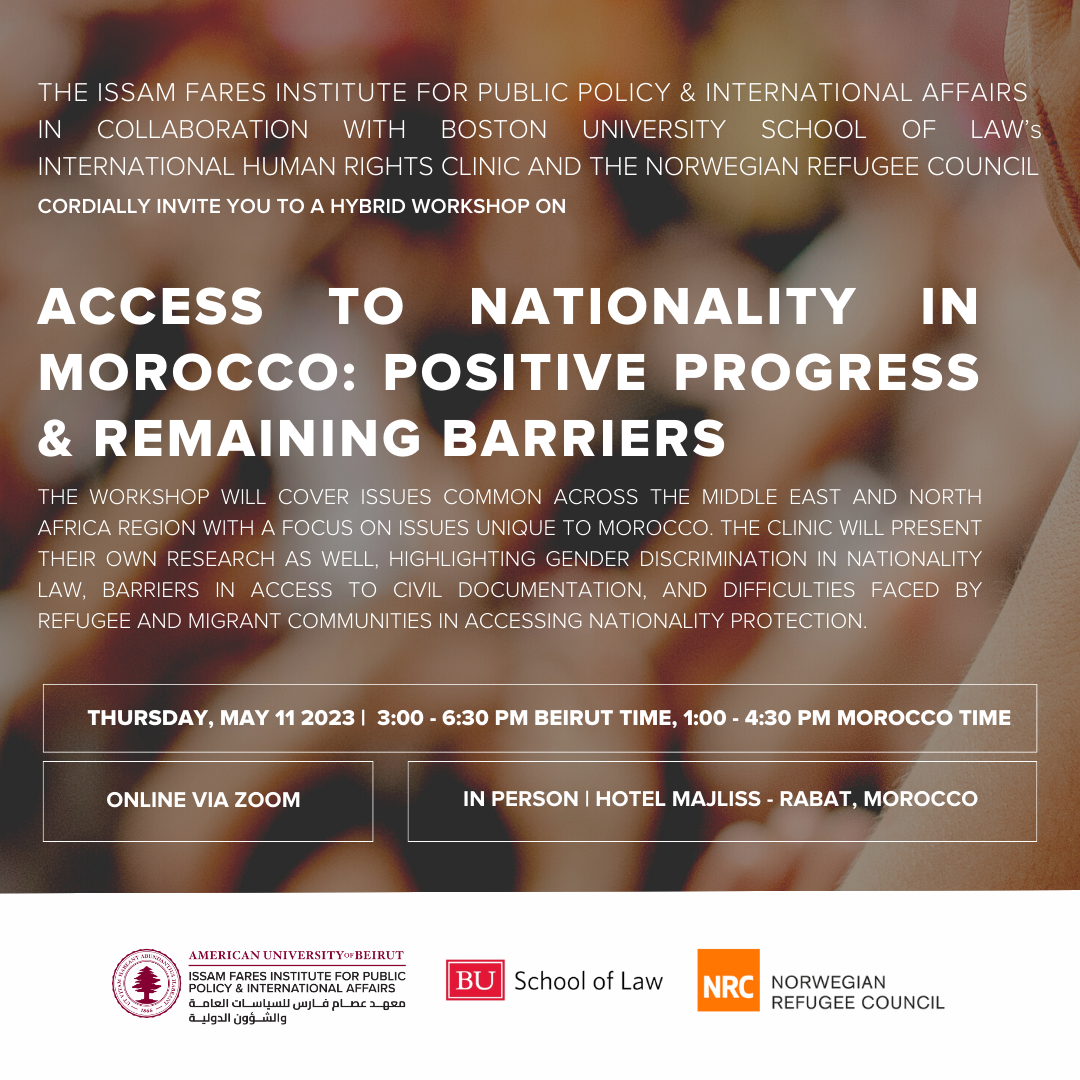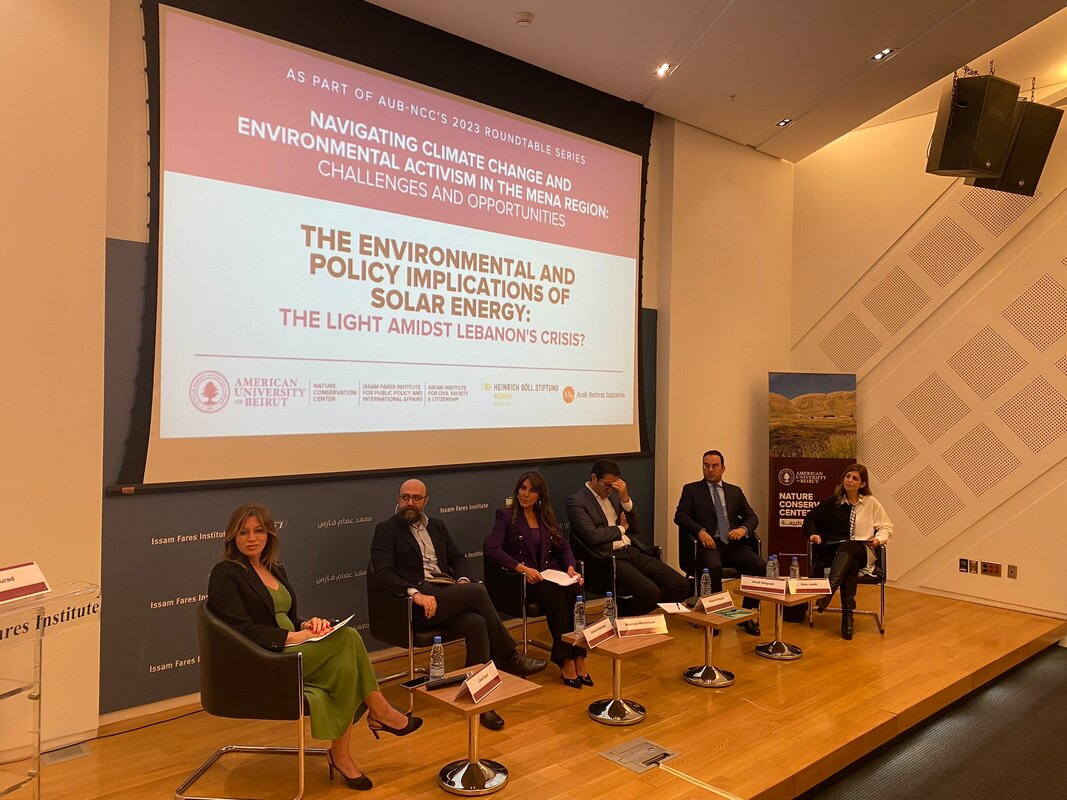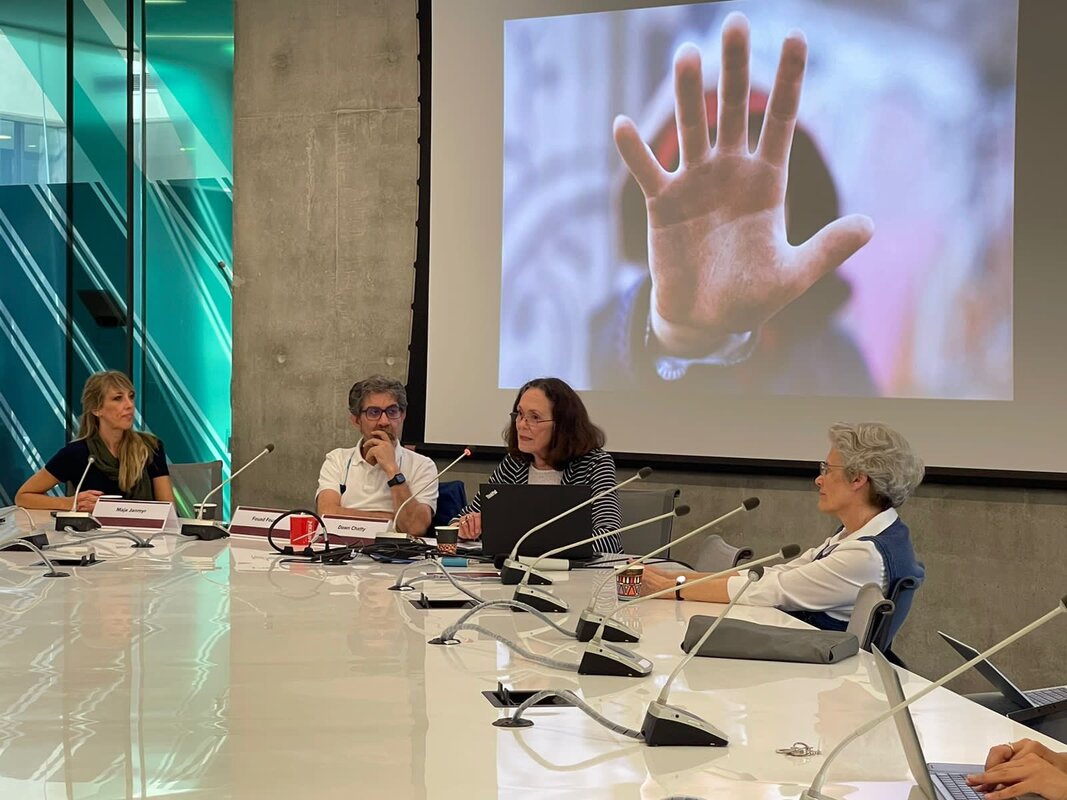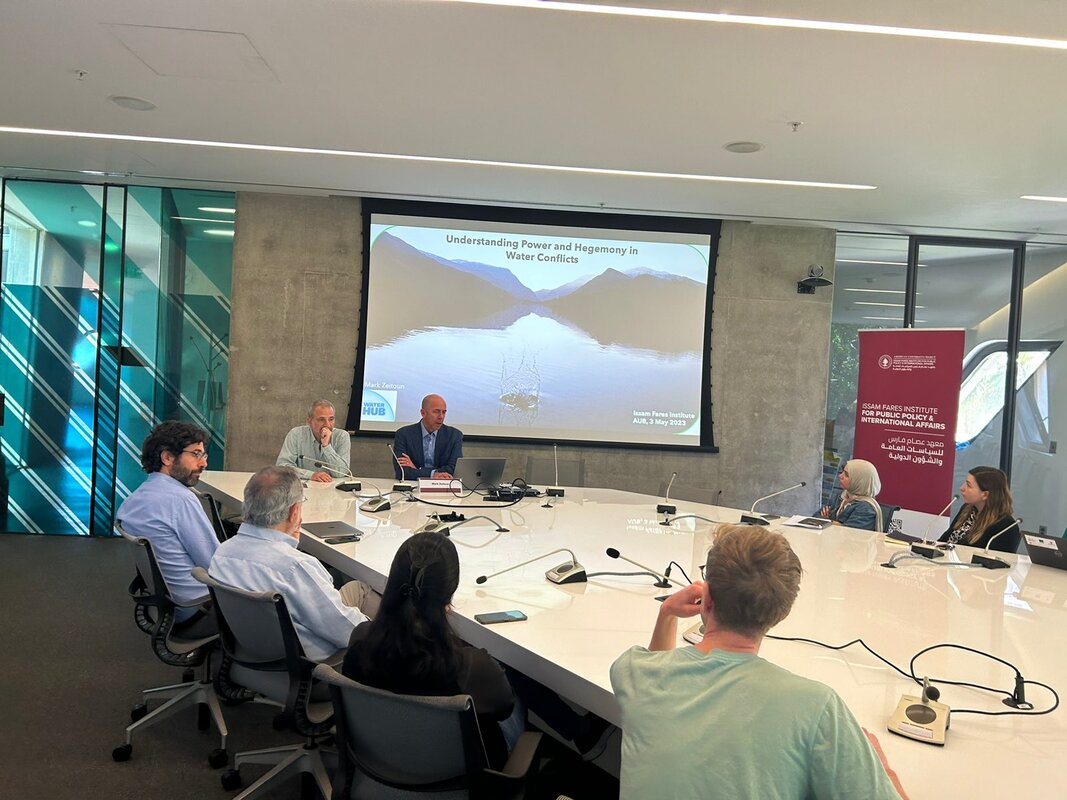|
IFI held a webinar titled “The Domestic and Regional Impact of the Turkish General Elections 2023” on May 31, which tackled the shifts and implications of Turkey’s latest presidential elections. The panel included Ahmet Uysal, Director of the Center of Middle Eastern Studies (ORSAM), and Sinem Adar, Associate at the Centre for Applied Turkey Studies (CATS) at the German Institute for International and Security Affairs (SWP). The discussion was moderated by IFI Associate Fellow Yeghia Tashijan.
The Issam Fares Institute for Public Policy & International Affairs (IFI) held a webinar titled “Citizenship, Nationality, and Stateless Issues in Algeria” on May 18. The webinar discussed statelessness in Algeria and its implications in the MENA region, while panelists presented research findings from a comprehensive project focused on Algeria, examining the risks and challenges faced by refugees and migrant communities in accessing civil documentation and nationality.
Hybrid Workshop: “Access to Nationality in Morocco: Positive Progress & Remaining Barriers”5/11/2023
The Issam Fares Institute for Public Policy & International Affairs (IFI), the International Human Rights Clinic at the Boston University School of Law, and the Norwegian Refugee Council (NRC), held a hybrid workshop titled “Access to Nationality in Morocco: Positive Progress & Remaining Barriers” on May 11. The workshop included speakers from the NRC, Association Démocratiques des Femmes du Maroc, Africa Watch, Université Hassan II de Casablanca and Mohamad V University.
As part of AUB-NCC's 2023 roundtable series "Navigating Climate Change and Environmental Activism in the MENA Region: Challenges and Opportunities," the Issam Fares Institute for Public Policy & International Affairs (IFI) and the Nature Conservation Center (NCC) at the American University of Beirut, held a panel discussion titled “The Environmental and Policy Implications of Solar Energy: The Light Amidst Lebanon's Crisis?” on May 9. The discussion explored the far-reaching effects of the widespread adoption of solar energy in Lebanon. It covered the pressing need for a comprehensive national policy plan, as well as the drafting of appropriate laws for the recycling of solar panels and batteries.
On May 5, IFI held a discussion on "The Duty to Be Generous: Challenging Contemporary Ideas on Asylum and Refuge in Forced Migration," organized in collaboration with the IDRC Research Chair on Forced Displacement. The talk featured Dawn Chatty, Emeritus Professor in Anthropology and Forced Migration and former Director of the Refugee Studies Centre at the University of Oxford, with discussant Maja Janmyr, IFI Associate Fellow, and moderated by Fouad Fouad, Chair of the IDRC Forced Displacement Program in the Middle East and IFI Associate Fellow.
IFI hosted a lecture titled "Understanding Power and Hegemony in Water Conflicts throughout Western Asia" on May 3 given by Dr. Mark Zeitoun, Director General of the Geneva Water Hub and a professor specializing in water security at the University of East Anglia.
Professor Zeitoun began his talk by exploring the various forms of power, such as authority, control, influence, weaponry, and kinetic energy. He also delved into three dimensions of power: structural power, bargaining power, and ideational power. Structural power relates to power dynamics within social structures, bargaining power arises from negotiations or contractual relationships, while ideational power conveys the acceptance and internalization of power through beliefs and ideas. A key point emphasized by Professor Zeitoun was the significance of awareness of rights and protective public policies to restrain the influence of power. Drawing on the South African liberation struggle, he highlighted the manipulative power of oppressors over the minds of the oppressed. Even in the absence of explicit segregation laws, internalized beliefs can perpetuate and reinforce power dynamics. |
Archives
July 2024
|

